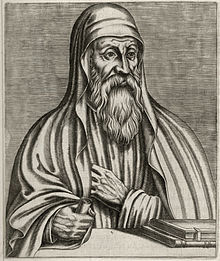Christian Universalism is focused on the idea of universal reconciliation.
Also known as universal salvation, it is a doctrine stating that every
human soul will ultimately be reconciled to God because of divine love
and mercy.
A belief in one fundamental truth is another important tenet in Universalism. The living truth is seen as more far-reaching than the national, cultural, or religious boundaries or interpretations of that one truth. As the Rig Veda states, "Truth is one; sages call it by various names."
Universalism has had an influence on modern day Hinduism, in turn influencing western modern spirituality.
Unitarian Universalism emphasizes that religion is a universal human quality, and also focuses on the universal principles of most religions. It accepts all religions in an inclusive manner.
A belief in one fundamental truth is another important tenet in Universalism. The living truth is seen as more far-reaching than the national, cultural, or religious boundaries or interpretations of that one truth. As the Rig Veda states, "Truth is one; sages call it by various names."
Universalism has had an influence on modern day Hinduism, in turn influencing western modern spirituality.
Unitarian Universalism emphasizes that religion is a universal human quality, and also focuses on the universal principles of most religions. It accepts all religions in an inclusive manner.
Philosophy
Universality
In philosophy, universality is the notion that universal facts can be
discovered and is therefore understood as being in opposition to relativism.
In certain religions, universalism is the quality ascribed to an entity whose existence is consistent throughout the universe.
Moral universalism
Moral universalism (also called moral objectivism or universal morality) is the meta-ethical position that some system of ethics applies universally. That system is inclusive of all individuals, regardless of culture, race, sex, religion, nationality, sexual orientation, or any other distinguishing feature. Moral universalism is opposed to moral nihilism and moral relativism. However, not all forms of moral universalism are absolutist, nor do they necessarily value monism. Many forms of universalism, such as utilitarianism, are non-absolutist. Other forms such as those theorized by Isaiah Berlin, may value pluralist ideals.
Secular universalism
Universalism
is not only a set of values, but a worldview to which any can subscribe
if they observe and believe in the universality of the human
experience—and that of all sentient life—and work to uphold the
principles, ethics, and actions that safeguard these fundamental things.
Indeed, many Universalists may be attracted to the logic of
universally applicable principles, rather than any belief or dogma.
Human unity, solidarity, and the perceived need for a sustainable and
socially conscious global order are among the tendencies of
non-religious Universalist thought.
Religion
Bahá'í Faith
Symbols of many religions on a pillar of the Bahá'í House of Worship in Wilmette, Illinois, U.S.
In Bahá'í belief, a single God has sent all the historic founders of the world religions in a process of progressive revelation.
As a result, the major world religions are seen as divine in origin and
are continuous in their purpose. In this view, there is unity among the
founders of world religions, but each revelation brings a more advanced
set of teachings in human history and none are syncretic.
Within this universal view, the unity of humanity is one of the central teachings of the Bahá'í Faith. The Bahá'í teachings
state that since all humans have been created in the image of God, God
does not make any distinction between people with regard to race, color
or religion. Thus, because all humans have been created equal, they all require equal opportunities and treatment.
Hence the Bahá'í view promotes the unity of humanity, and that people's
vision should be world-embracing and that people should love the whole
world rather than just their nation.
The teaching, however, does not equate unity with uniformity; instead the Bahá'í writings advocate the principle of unity in diversity where the variety in the human race is valued.
Operating on a worldwide basis this cooperative view of the peoples and
nations of the planet culminates in a vision of the practicality of the
progression in world affairs towards, and the inevitability of, world peace.
Christianity
The fundamental idea of Christian Universalism is universal reconciliation
– that all humans will eventually be saved. They will eventually enter
God's kingdom in Heaven, through the grace and works of the lord Jesus Christ. Christian Universalism teaches that an eternal Hell
does not exist, and that it was not what Jesus had taught. They point
to historical evidence showing that some early fathers of the church
were universalists, and attribute the perpetuating idea of hell to
eternal mistranslation.
Universalists cite numerous Biblical passages which reference the salvation of all beings. In addition, they argue that an eternal hell is both unjust, and against the nature and attributes of a loving God.
The remaining beliefs of Christian Universalism are generally compatible with the fundamentals of Christianity:
- God is the loving Parent of all peoples, see Love of God.
- Jesus Christ reveals the nature and character of God, and is the spiritual leader of humankind.
- Humankind is created with an immortal soul, which death can not end—or a mortal soul that shall be resurrected and preserved by God. A soul which God will not wholly destroy.
- Sin has negative consequences for the sinner either in this life or the afterlife. All of God's punishments for sin are corrective and remedial. None of such punishments will last forever, or result in the permanent destruction of a soul. Some Christian Universalists believe in the idea of a Purgatorial Hell, or a temporary place of purification that some must undergo before their entrance into Heaven.
In 1899 the Universalist General Convention, later called the Universalist Church of America, adopted the Five Principles: the belief in God, Jesus Christ, the immortality of the human soul, the reality of sin and universal reconciliation.
History
Origen, traditionally considered a 3rd-century proponent of Universal Reconciliation
Universalist writers such as George T. Knight have claimed that Universalism was a widely held view among theologians in Early Christianity. These included such important figures such as Alexandrian scholar Origen as well as Clement of Alexandria,
a Christian theologian. Origen and Clement both included the existence
of a non-eternal Hell in their teachings. Hell was remedial, in that it
was a place one went to purge one's sins before entering into Heaven.
The first undisputed documentations of Christian Universalist
ideas occurred in 17th-century England and 18th-century Europe as well
as in colonial America. Between 1648-1697 English activist Gerrard Winstanley, writer Richard Coppin, and dissenter Jane Leade,
each taught that God would grant all human beings salvation. The same
teachings were later spread throughout 18th-century France and America
by George de Benneville. People who taught this doctrine in America would later become known as the Universalist Church of America.
The Greek term apocatastas came to be related by some to the beliefs of Christian Universalism,
but central to the doctrine was the restitution, or restoration of all
sinful beings to God, and to His state of blessedness. In early Patristics, usage of the term is distinct.
Universalist theology
Universalist theology is grounded in history, scripture and assumptions about the nature of God. Thomas Whittemore wrote the book "100 Scriptural Proofs that Jesus Christ Will Save All Mankind" quoting both Old and New Testament verses which support the Universalist viewpoint.
Some Bible verses he cites and are cited by other Christian Universalists are:
- 1 Corinthians 15:22
- "For as in Adam ALL die, so also in Christ shall ALL be made alive." (ESV; emphasis added)
- 2 Peter 3:9
- "The Lord is not slow to fulfill his promise as some count slowness, but is patient toward you, not wishing that any should perish, but that all should reach repentance." (ESV; emphasis added)
- 1 Timothy 2:3–6
- "This is good, and pleases God our Savior, who wants all men to be saved and to come to a knowledge of the truth. For there is one God and one mediator between God and men, the man Christ Jesus, who gave himself as a ransom for ALL men—the testimony given in its proper time." (NIV; emphasis added)
- 1 John 2:2
- "He is the atoning sacrifice for our sins, and not only for ours but also for the sins of the whole world." (NIV)
- 1 Timothy 4:10
- "For to this end we toil and strive, because we have our hope set on the living God, who is the Savior of all people, especially of those who believe." (ESV; emphasis added)
- Romans 11:32
- "For God has bound all men over to disobedience so that he may have mercy on them all." (NIV)
Mistranslations
Christian
Universalists point towards the mistranslations of the Greek word αιών
(Lit. aion), as giving rise to the idea of Eternal Hell, and the idea
that some people will not be saved.
This Greek word is the origin of the modern English word aeon, which refers to a period of time or an epoch.
The 19th century theologian Marvin Vincent wrote about the word aion, and the supposed connotations of "eternal" or "temporal":
Aion, transliterated aeon, is a period of longer or shorter duration, having a beginning and an end, and complete in itself. [...] Neither the noun nor the adjective, in themselves, carry the sense of endless or everlasting."
Dr. Ken Vincent writes that "When it (aion) was translated into Latin Vulgate, "aion" became "aeternam" which means "eternal".
Catholicism
The first use of the term "Catholic Church" (literally meaning "universal church") was by the church father Saint Ignatius of Antioch in his Letter to the Smyrnaeans (circa 100 AD).
The Catholic church believes that God judges everyone based only on their moral acts, that no one should be subject to human misery, that everyone is equal in dignity yet distinct in individuality before God, that no one should be discriminated against because of their sin or concupiscence, and that apart from coercion God exhausts every means to save mankind from evil: original holiness being intended for everyone, the irrevocable Old Testament covenants, each religion being a share in the truth, elements of sanctification in non-Catholic Christian communities, the good people of every religion and nation, everyone being called to baptism and confession, and purgatory, suffrage, and indulgences for the dead. The church believes that everyone is predestined to heaven, that no one is predestined to hell, that everyone is redeemed by Christ's Passion, that no one is excluded from the church except by sin, and that everyone can either love God by loving others unto going to heaven or reject God by sin unto going to hell. The church believes that God's predestination takes everything into account, and that his providence brings out of evil a greater good, as evidenced, the church believes, by the Passion of Christ being all at once predestined by God, foretold in Scripture, necessitated by original sin, authored by everyone who sins, caused by Christ's executioners, and freely planned and undergone by Christ. The church believes that everyone who goes to heaven joins the church, and that from the beginning God intended Israel to be the beginning of the church, wherein God would unite all persons to each other and to God. The church believes that heaven and hell are eternal.
Hinduism
Author David Frawley says that Hinduism has a "background universalism" and its teachings contain a "universal relevance." Hinduism is also naturally religiously pluralistic. A well-known Rig Vedic hymn says: "Truth is One, though the sages know it variously." Similarly, in the Bhagavad Gītā (4:11), God, manifesting as an incarnation, states: "As people approach me, so I receive them. All paths lead to me."
The Hindu religion has no theological difficulties in accepting degrees
of truth in other religions. Hinduism emphasizes that everyone actually
worships the same God, whether one knows it or not.
While Hinduism has an openness and tolerance towards other religions, it also has a wide range of diversity within it. There are considered to be six orthodox Hindu schools of philosophy/theology, as well as multiple unorthodox or "hetrodox" traditions called darshanas.
Hindu Universalism
Hindu Universalism, also called Neo-Vedanta and neo-Hinduism, is a modern interpretation of Hinduism which developed in response to western colonialism and orientalism. It denotes the ideology that all religions are true and therefore worthy of toleration and respect.
It is a modern interpretation that aims to present Hinduism as a "homogenized ideal of Hinduism" with Advaita Vedanta as its central doctrine. For example, it presents that:
... an imagined "integral unity" that was probably little more than an "imagined" view of the religious life that pertained only to a cultural elite and that empirically speaking had very little reality "on the ground," as it were, throughout the centuries of cultural development in the South Asian region.
Hinduism embraces universalism by conceiving the whole world as a
single family that deifies the one truth, and therefore it accepts all
forms of beliefs and dismisses labels of distinct religions which would
imply a division of identity.
This modernised re-interpretation has become a broad current in Indian culture, extending far beyond the Dashanami Sampradaya, the Advaita Vedanta Sampradaya founded by Adi Shankara. An early exponent of Hindu Universalism was Ram Mohan Roy, who established the Brahmo Samaj. Hindu Universalism was popularised in the 20th century in both India and the west by Vivekananda and Sarvepalli Radhakrishnan. Veneration for all other religions was articulated by Gandhi:
After long study and experience, I have come to the conclusion that [1] all religions are true; [2] all religions have some error in them; [3] all religions are almost as dear to me as my own Hinduism, in as much as all human beings should be as dear to one as one's own close relatives. My own veneration for other faiths is the same as that for my own faith; therefore no thought of conversion is possible.
Western orientalists played an important role in this popularization,
regarding Vedanta to be the "central theology of Hinduism". Oriental scholarship portrayed Hinduism as a "single world religion", and denigrated the heterogeneity of Hindu beliefs and practices as 'distortions' of the basic teachings of Vedanta.
Islam
Islam recognizes to a certain extent the validity of the Abrahamic religions, the Quran identifying Jews, Christians, and "Sabi'un" (usually taken as a reference to the Mandaeans) as "people of the Book" (ahl al-kitab). Later Islamic theologians expanded this definition to include Zoroastrians,
and later even Hindus, as the early Islamic empire brought many people
professing these religions under its dominion, but the Qur'an explicitly
identifies only Jews, Christians, and Sabians as People of the Book. The relation between Islam and universalism has assumed crucial importance in the context of political Islam or Islamism, particularly in reference to Sayyid Qutb, a leading member of the Muslim Brotherhood movement, and one of the key contemporary philosophers of Islam.
There are several views within Islam with respect to Universalism. According to the most inclusive teachings, common among the liberal Muslim movements, all monotheistic religions or people of the book have a chance of salvation. For example, Surah 2:62,256 states that:
Verily! Those who believe and those who are Jews and Christians, and Sabians, whoever believes in Allah and the Last Day and do righteous good deeds shall have their reward with their Lord, on them shall be no fear, nor shall they grieve...let there be no compulsion in religion.
However, the most exclusive teachings disagree. For example, the Salafi refer to Surah 9:5,29:
Then, when the sacred months have passed, slay the idolaters [mushrikun] wherever ye find them, and take them, and besiege them, and lay in wait in every stratagem of war. But if they repent and establish worship and pay the Zakat, then leave their way free. Lo! Allah is Forgiving, Merciful [...] Fight against such of those who have been given the Scripture [i.e. people of the book] as believe not in Allah nor the Last Day, and forbid not that which Allah hath forbidden by His messenger, and follow not the Religion of Truth, until they pay the jizya readily, being brought low [in submission].
The interpretation of all of these passages are hotly contested
among various schools of thought, traditionalist and reform-minded,
and branches of Islam, from the reforming Quranism and Ahmadiyya to the ultra-traditionalist Salafi, as is the doctrine of abrogation (naskh)
which is used to determine which verses take precedence, based on
reconstructed chronology, with later verses superseding earlier ones.
The traditional chronology places Surah 9 as the last or second-to-last
surah revealed, thus, in traditional exegesis, it gains a large power of
abrogation, and verses 9:5,29,73 are held to have abrogated 2:256
The ahadith also play a major role in this, and different schools of
thought assign different weightings and rulings of authenticity to
different hadith, with the four schools of Sunni thought accepting the
Six Authentic Collections, generally along with the Muwatta Imam Malik.
Depending on the level of acceptance of rejection of certain
traditions, the interpretation of the Koran can be changed immensely,
from the Qur'anists and Ahmadiyya who reject the ahadith, to the Salafi,
or ahl al-hadith, who hold the entirety of the traditional collections in great reverence.
Traditional Islam views the world as bipartite, consisting of the House of Islam, that is, where people live under the Sharia; and the House of War, that is, where the people do not live under Sharia, which must be proselytized using whatever resources available, including, in some traditionalist and conservative interpretations, the use of violence, as holy struggle in the path of God, to either convert its inhabitants to Islam, or to rule them under the Shariah (cf. dhimmi).
Judaism
Sefer Torah at old Glockengasse Synagogue (reconstruction), Cologne.
Judaism teaches that God chose the Jewish people to be in a unique covenant with God, and one of their beliefs is that Jewish people were charged by the Torah
with a specific mission—to be a light unto the nations, and to
exemplify the covenant with God as described in the Torah to other
nations. This view does not preclude a belief that God also has a
relationship with other peoples—rather, Judaism holds that God had
entered into a covenant with all humanity as Noachides,
and that Jews and non-Jews alike have a relationship with God, as well
as being universal in the sense that it is open to all mankind.
Modern Jews such as Emmanuel Levinas advocate a universalist mindset that is performed through particularist behavior. An on-line organization, the Jewish Spiritual Leaders Institute founded and led by Steven Blane,
who calls himself an "American Jewish Universalist Rabbi", believes in a
more inclusive version of Jewish Universalism, stating that "God
equally chose all nations to be lights unto the world, and we have much
to learn and share with each other. We can only accomplish Tikkun Olam by our unconditional acceptance of each other's peaceful doctrines."
Sikhism
In Sikhism, all the religions of the world are compared to rivers flowing into a single ocean. Although the Sikh gurus did not agree with the practices of fasting, idolatry
and pilgrimage during their times, they stressed that all religions
should be tolerated and considered on equal footing. The Sikh scripture,
the Guru Granth Sahib, contains the writings of not just the Sikh guru themselves, but the writings of several Hindu and Muslim saints, known as the Bhagats.
The very first word of the Sikh scripture is "Ik", followed by
"Oh-ang-kar". This literally means that there is only one god, and that
one is wholesome, inclusive of the whole universe. It further goes on to
state that all of creation, and all energy is part of this primordial
being. As such, it is described in scripture over and over again, that
all that occurs is part of the divine will, and as such, has to be
accepted. It occurs for a reason, even if its beyond the grasp of one
person to understand.
Although Sikhism does not teach that men are created as an image of God, it states that the essence of the One is to be found throughout all of its creation. As was said by Yogi Bhajan, the man who is credited with having brought Sikhism to the West:
If you can't see God in all, you can't see God at all. (Sri Singh Sahib, Yogi Bhajan)
The First Sikh Guru, Guru Nanak said himself:
There is no Hindu, there is no Muslim.
By this, Guru Nanak meant that there is no distinction between religion in God's eyes, whether polytheist, monotheist, pantheist,
or even atheist, all that one needs to gain salvation is purity of
heart, tolerance of all beings, compassion and kindness. Unlike many of
the major world religions, Sikhism does not have missionaries, instead it believes men have the freedom to find their own path to salvation.
Unitarian Universalism
Sign on a UU church in Rochester, Minnesota, United States.
Unitarian Universalism (UU) is a theologically liberal religion
characterized by a "free and responsible search for truth and meaning". Unitarian Universalists do not share a creed; rather, they are unified by their shared search for spiritual growth
and by the understanding that an individual's theology is a result of
that search and not a result of obedience to an authoritarian
requirement. Unitarian Universalists draw from all major world religions and many different theological sources and have a wide range of beliefs and practices.
While having its origins in Christianity, UU is no longer a
Christian church. As of 2006, fewer than about 20% of Unitarian
Universalists identified themselves as Christian.
Contemporary Unitarian Universalism espouses a pluralist approach to
religious belief, whereby members may describe themselves as humanist, agnostic, deist, atheist, pagan, Christian, monotheist, pantheist, polytheist, or assume no label at all.
The Unitarian Universalist Association (UUA) was formed in 1961, a consolidation of the American Unitarian Association, established in 1825, and the Universalist Church of America, established in 1866. It is headquartered in Boston, and mainly serves churches in the United States. The Canadian Unitarian Council became an independent body in 2002.
Zoroastrianism
Faravahar (or Ferohar), one of the primary symbols of Zoroastrianism, believed to be the depiction of a Fravashi (guardian spirit)
Some varieties of Zoroastrian (such as Zurvanism) are universalistic in application to all races, but not necessarily universalist in the sense of universal salvation.
Critics
In his book The Miracle of Theism: Arguments for and against the Existence of God, the Australian philosopher J. L. Mackie
noted that whilst in the past a miracle performed by Jesus had served
as proof to Christians that he was the 'one true God', and that a
miracle performed by another religion's deity had served as a
(contradictory) proof to its own adherents, the universalist approach
resulted in any such miracle being accepted as a validation of all
religions, a situation that he characterized as "Miracle-workers of the
world, unite!"













